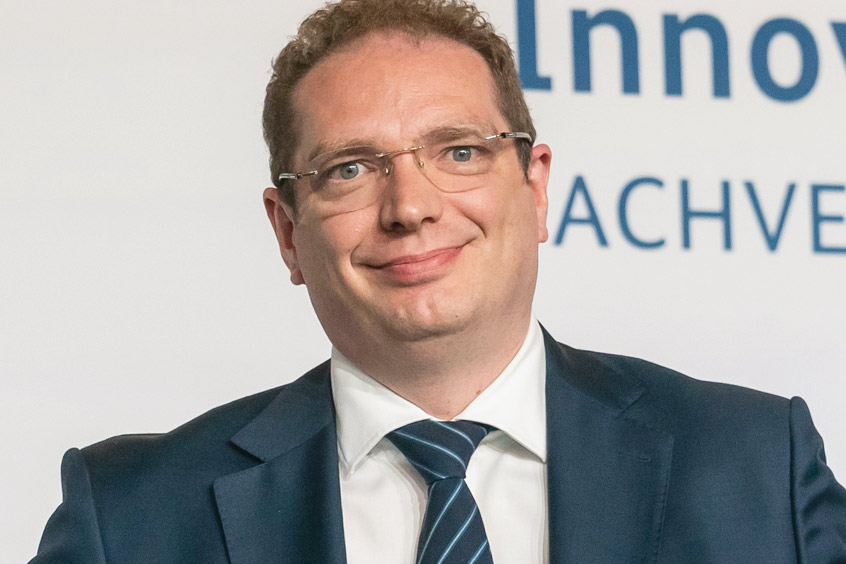ACE 2026 - The home of global charter.
 The bimonthly news publication for aviation professionals.
The bimonthly news publication for aviation professionals.



Germany-based helicopter emergency medical services (HEMS) not-for-profit ADAC Luftrettung has won a prestigious award from the country's Federal Ministry for Economic Affairs and Climate Protection (BMWK). At a ceremony in Berlin, ADAC's 'Multicopter in the rescue service' research project was awarded the Real Laboratories Innovation Prize, which honours outstanding test rooms for digital and ecological transformation that are characterised by their exemplary character and their contribution to modern and innovation-friendly law. ADAC Luftrettung won the prize in the Outlook category for the world's first pilot project to test multicopters in the rescue service arena.
Managing director Frédéric Bruder says: "This award encourages us to continue to advance the multicopter project and the associated research and pioneering work for the rescue service, with the aim of further improving patient care in Germany and making rapid air assistance sustainable and thus also future-proof."
“Real laboratories initially test the digital and sustainable transformation on a small scale in order to later roll it out on a large scale. The winners of the Real Laboratories Innovation Prize succeeded in an exemplary manner in bringing digital technologies into concrete applications in the real laboratory and thus created real added value, especially for climate and environmental protection," says Dr Anna Christmann, commissioner of the BMWK for the digital economy and start ups and federal government coordinator for German aerospace. Under her chairmanship, a jury of experts selected nine winning projects from a total of 101 entries.
Real laboratories are test rooms that are limited in terms of time and space, in which innovative technologies or business models are tested under real conditions. Real laboratories often require exemptions or the use of experimentation clauses and provide important insights into whether and how the legal framework needs to be further developed.
The 'Multicopter in the rescue service' real laboratory was launched in cooperation with the German UAM developer Volocopter at the end of 2018 by ADAC air rescue service, and was funded by the non-profit ADAC Foundation. For the study, the Institute for Emergency Medicine and Medical Management at the Ludwig-Maximilians-University Munich determined the application potential of a multicopter in a macro- and micro-analysis for the federal states of Bavaria and Rhineland-Palatinate. Based on historical control centre data, more than 26,000 emergency multicopter operations were simulated on the computer and scenarios with different deployment radiuses were played through. The full study was published in October 2020.
Multicopters are vertical take off aircraft with multiple electrically powered rotors. So far, the aircraft have primarily been developed as air taxis in the civil sector. The ADAC air rescue study was the first to theoretically prove a tactical advantage in using multicopters in rescue services, and the company reserved two VoloCity aircraft in December 2020, for delivery after type certification. According to the study, there are significant improvements in emergency care from a deployment radius of 25 to 30 kilometres. In this case, the optimal flight speed of the multicopter should be 100 to 150 km/h, the minimum range around 150 kilometres. Compared to a rescue helicopter, the multicopter is quieter and produces fewer emissions. However, the multicopter is expressly not intended to replace the rescue helicopter, but rather to supplement rapid help from the air.
In the real laboratory, extensive tests with multicopters will be carried out at two locations in Germany over the next few years with the help of special permits. The preparations for this are already underway. According to the current planning status, real operations are to start in the model regions from 2024. In recent months, ADAC air rescue pilots have carried out extensive test flights on a VoloCity simulator. Until the pilot project starts in the model regions, the new aircraft will be prepared and tested for flight service at non-public research locations by the manufacturer Volocopter.
Volocopter wants to give the go-ahead for regular VoloCity air taxi operations for the Paris 2024 Olympic Games.